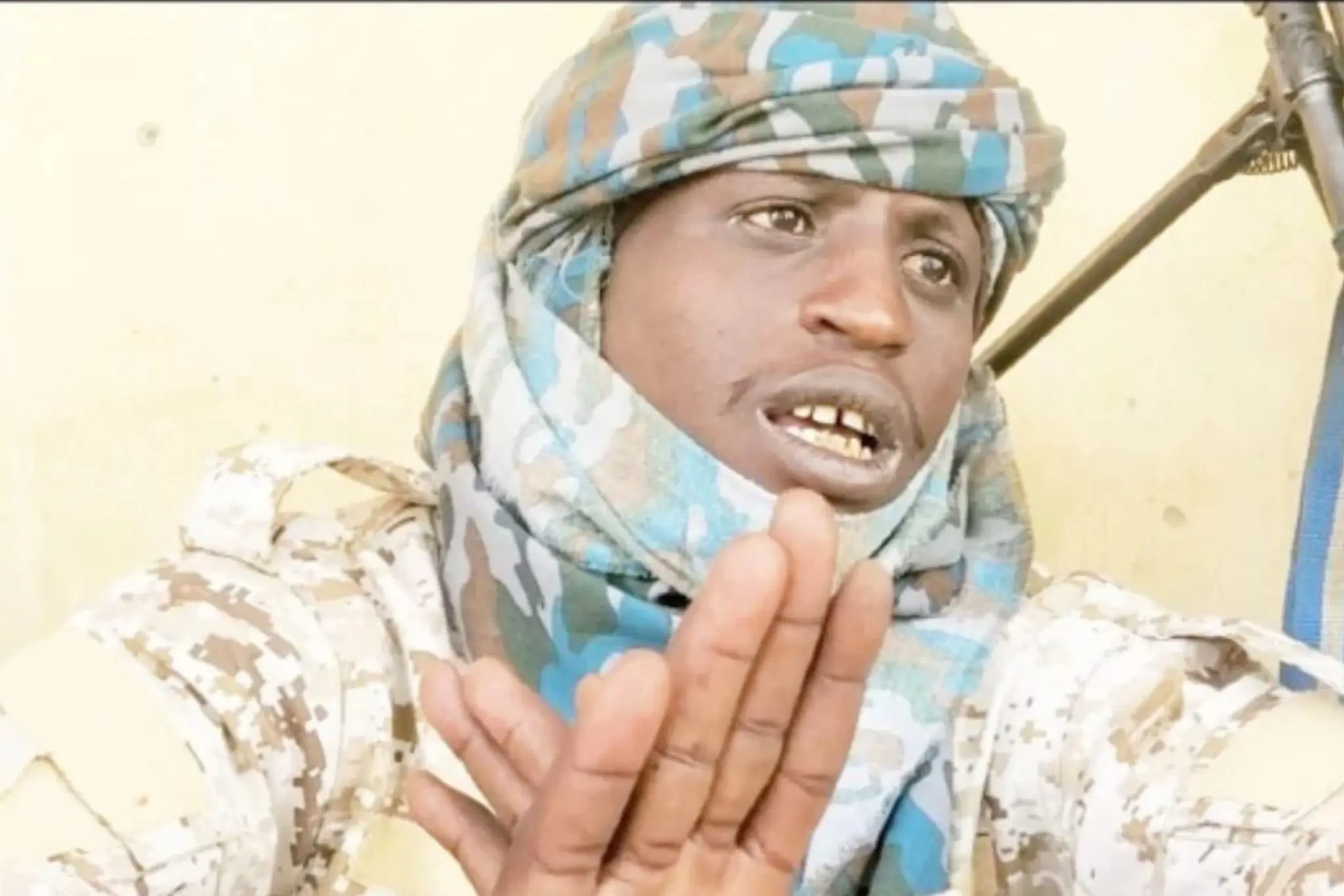
Nigerian President Muhammadu Buhari
The President of the International Association for Child and Adolescent Psychiatry, Professor Olayinka Omigbodun, played host to the 24th anniversary of the Day of the African Child on 16 June 2015. Professor Omigbodun, who is also one the brains behind the establishment of the Centre for Child and Adolescent Mental Health (CCAMH), at the University of Ibadan bore her mind on a number of issues relating to the girl-child in the African society. Kadiri Tolani reports:
Let’s begin with a foray into your person and your career
I am Olayinka Omigbodun, a professor of Psychiatry at the University of Ibadan. I am also a consultant in child and adolescent psychiatry at the University College Hospital and also the Principal Director of the Centre for Child and Adolescent Mental Health in the university. The centre is actually a John D. and Catherine McArthur foundation. About four years ago, we decided to fund the building up of capacity for Child and Adolescent Mental Health in Africa and this came into fruition after we successfully obtained a grant.
In Sub-Saharan Africa, there was no formal training programme to train people in handling children and adolescents with mental health problems. It was as a result of this shortcoming that we now decided to put together this programme. We collaborated with our partners across the African continent, the US, Great Britain and Asia and successfully developed a curriculum that would cater for the academic deficiencies in this regard.
Firstly, it is critical to note that in Africa, over 50 per cent of the population are children or adolescents. Secondly, one in every five children or adolescents has a mental problem that needs a form of intervention. Thirdly, 50 per cent of adult psychiatric illnesses start before the age of fourteen. This is no doubt a grim reflection of the fact that several individuals with psychotic illnesses actually began to manifest the symptoms in their early teens. The problem however is that we live in a society where people are usually reluctant to recognise a mental health problem. Rather than pursue the appropriate intervention, most mental health challenges are usually seen in the light of spiritual attacks and demonic possessions.
It is against this backdrop that we have considered it imperative to put this programme in place so that our students can be trained on various aspects of child and adolescent mental health. It is important to note that there is a delicate overlap between child mental health and legal issues. Thus, we also teach courses in law alongside courses that are centred on how to assess children in normal stages of development and those with mental health problems. It is interesting to note that Nigeria is a signatory to the United Nations Convention on the Rights of a child. In spite of this positive trend, only twenty-four states in the federation have domesticated the Child Rights Act. Eleven states in the North are still found wanting while Enugu is the only southern state yet to domesticate it. The snag which has been holding back these state largely bothers on gender inequality. There is the issue of sexism which is unfavourably skewed towards the girl-child. Most traditions frown at the girl-child being the heir apparent.
The other aspect which even seems to be more critical is the issue of child marriage. As you know, today marks the celebration of the African child. It is reserved in commemoration of those innocent children in South Africa who were killed due to their protest against the inferior quality of education they had. The topic chosen by the African Union is ‘To abolish child marriage’. A child is anybody under the age of 18. The malady is being borne by both boys and girls but the girls often bear the brunt most. Ipso-facto, anyone who indulges a minor in the harsh realities of marital life is guilty of child marriage which is indeed an appalling trend.
Most victims are often left feeling devastated and helpless. Studies have shown that 40 per cent of Nigerian girls are married at the age of 14. So you can imagine the lot of a girl married off at the age of 10 or 12. Firstly, her education is affected. Most of them usually stop schooling because of the marital demands which they are already exposed to. Education is one of the best mentally promoting activity which in turn helps to build the intellectual wherewithal of a child. It increases their ability to understand, to take charge of their homes and to provide a conducive environment as they become women. In fact, educating a woman is tantamount to investing in a nation’s commonwealth. When you educate a woman, you educate a home and a community at large. They develop the innate ability to make informed choices by virtue of their formal orientation.
So like I emphasised earlier, when you stop a child’s education, you disrupt the child’s potential and probably make her more vulnerable to the lower strata of the society. Studies have shown that when a girl-child is married, she is more likely to experience domestic violence. The spouse often does not have the tolerance to condone her youthful exuberance and the child likewise does not possess the ability to understand the husband at such youthful age. Thus, such matrimonies rarely work. Exposing the girl-child to marital violence makes her prone to mental problems such as depression, anxiety, dissociative disorders and several abnormalities that make them lose contact with reality. Many individuals roaming the street with incoherent demeanours are usually victims of such trends. Studies have shown that children who have babies before the age of 15 are five times more likely to die than those who begin child bearing in their twenties. A girl in her teens is as good as a child as well. Thus, when such a girl begins child bearing, she invariably lacks the ability to take care of the child properly. In the event of this, the baby is likely to suffer from malnutrition, lack of stimulation, attachment disorders and may also be vulnerable to mental and physical disorders.
So it is like a vicious cycle. This is the more reason why we need to join hands together. The United Nations Child Rights Act stipulates that children must not be married - every child must be in school, she must be protected from any form of violence, she must be involved in decision making and she must not be separated from her parents. By that very fact, people who indulge in child marriages, sexism and female genital mutilation are violating the United Nations Convention on the rights of a child. It is quite pathetic that genital mutilation is still prevalent in this era of ours. It is bizarre to think that removing the clitoris of a woman will make her keep her chastity. There is no empirical evidence to justify this ugly trend. The pain could be so excruciating. When the clitoris and the surrounding area of the genital are cut off, they heal with scars. So most of the time, the area where urine is supposed to come out from is blocked. In other situations, the menstrual cycle could be altered and the pain can only be best imagined. The physical complications are quite numerous.
It is even weird to imagine that those who indulge in the atrocious act often use knives. The mental trauma being etched in the mind of the girl especially when she undergoes such experience say around the age of 9 or 10 is really unimaginable. They just lie them down, get a number of men to clasp their arms and legs while someone else just brings out the blade and cuts off the clitoris. It is tantamount to cutting off a man’s penis. You can imagine how crude that looks. The society has been complacent about the lot of the girl-child for too long and it is high time we rose up to stop the ugly trend. Let’s say no to child marriage, no to sexism. A girl is as good as a boy. I am a female and proud to be one. Let’s say no to female genital mutilation and sexual abuse.
You made mention of the discordant legislations in Nigeria while delivering your lecture. There seem to be a dissonance between the legislations in Nigeria and that of the United Nations Convention on the rights of a child. What is your own position on this?
I personally subscribe to the United Nations Convention on the rights of a child. A child is anybody below the age of 18. On the average, a child starts school at the age of six. Her minimum learning curve should span till the age of 18. This I believe should be the basic level of education attained by any child. Such child tends to have an appreciation of what education entails. It is the best legacy any parent can bequeath to their children. So, basically, I believe a child should be seen as anyone below the age of 18 regardless of cultural differences, regional differences or state legislations.
The issue of vagina fistula is of great concern in the North where child marriage is still prevalent. A number of strides have also been made to formalise the al-majiri education in the North. Has this in any way helped in curbing the malaise of child marriage amid the complications that comes with it?
I really do not think there exists a strong correlation between the al-majiri and the prevalence of vagina fistula. Al-majiri is a form of Arabic education predominantly for males. Al-majiri emanated from an Arabic word meaning immigrant. It is used in referring to someone who leaves his home in search of knowledge. It is actually an Islamic practice. In the olden days, there were very few renowned mallams with Arabic training. These mallams were revered by other villagers and perceived as the builders of the society’s moral compass.
The villagers willingly dole out food and other material things to these mallams who, in exchange, tutor their children in Arabic. The unstructured practice of the al-majiri form of education makes the disadvantages more overwhelming. Imagine a mallam needing to take care of over 200 boys in a shanty cove. This is the reason why many of the boys resort to the nomadic lifestyles. Studies have shown that children are better off living in their homes. I once carried out a research with Doctor Abdulmalik on al-majiris’ and we discovered that some children leave their homes at the tender age of three in search of al-majiri education. Such experience could be mentally destabilising because it causes a break in their detachment. It should not be surprising that such a child is bound to develop an anti-social personality. The possession of a conscience definitely looks alien to them. It takes an anti-social personality for an individual to think of wearing explosives and destroying thousands of people all in the name of radical religious beliefs. I believe the Boko Haram sect can be best understood from this perspective. Many of those in this sect are actually sick. They really have mental problems. The kinds of atrocities they commit are not atrocities that can be committed by a stable person.
So it is possible that many of these Boko Haram individuals were al-majiris’ who left their homes early in search of a better life. Many of them are mentally sick. They lived on the streets and were subjected to inhumane conditions at their tender ages. Such ill proves to be a time bomb in the long run. Now that they are grown up, they have turned against the same society that raised them. Looking at the system, it becomes expedient for us to subscribe to the UN Conventions and insist that children should stay at home. There is nothing wrong in acquiring quranic education. A child can stay with his or her parents, go to school and attend quranic classes in the evening. Anything other than that does not look acceptable. Some children leave their parents and end up not seeing them again.
The issue of vagina fistula is pertaining to the girls. When a girl in her early teens bears a baby, she is likely to develop complications because her reproductive organs are not fully developed. The baby has problems moving through the back canal because it is usually very small. As a result, these untimely child bearers undergo arduous labour processes. In places where they can access better healthcare, the babies are usually removed through caesarean sections so as to save the girl the stress. But in most local climes, they do have access to the caesarean process and the girls do undergo labour for so many hours. The baby puts pressure on the wall between the vagina and the rectum where faeces are kept. So after prolonged labour, there is a breakdown of the wall and complications such as urine blockage occur. Faeces might also leak through the vagina because that area has been destroyed by prolonged labour.
Would you expatiate more on FOGAW, the programme you officially launched today?
This is for a section of the Centre for Child and Adolescent Mental Health (CCAMH) that would focus on girls and women. Everybody in the society needs a focus but for some reasons, girls and women need more of the focus. It is for this reason that we are going to take time out to form a group that would provide advocacy, research, service for girls and for women, particularly the girl-child. It is pertinent we admit that girls are being discriminated against. Even in a typical Nigerian home, the father receives the lion share of the food followed by the sons, the mother and then the daughters. In fact when the typical tradition family is beset by financial problems, they naturally feel at ease sending the boy to school while the girl is retained at home.
The other thing we found out is that girls are more prone to abuse. Typically, the girl assumes the role of a caregiver whenever anyone is sick in the home. Thus, the girl is more prone to domestic violence, they are more prone to emotional abuse, they are more prone to sexual abuse, they are more prone to slave trafficking, child trafficking, genital mutilation and many other forms of discriminations. This is why we need to focus more on girls and women and then send a strong message out, ‘Enough is enough.’ It is not a struggle of just the women. We need the collaboration of all and sundry to stop these harmful practices so that the wealth of the nation which is in our children will be able to rise up and we can have a better community.






















